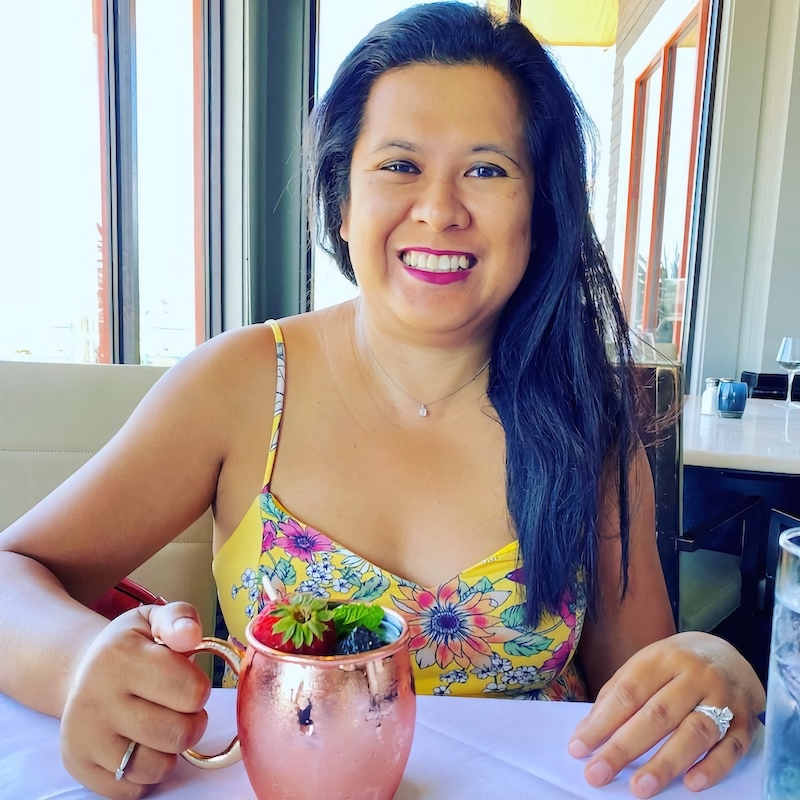Student Blog
What are OS/OT?
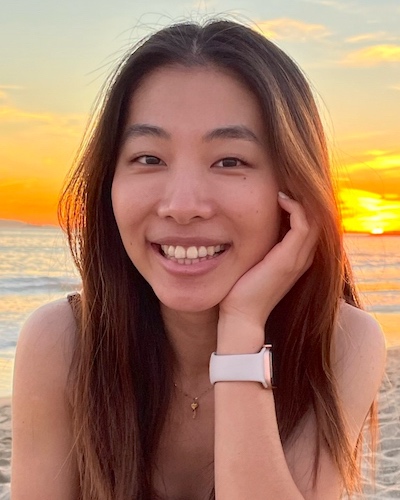
From Enemies to Friends . . . to Lovers: My Occupational Therapy Journey! ⟩
September 22, 2022, by Yoojin
Admissions First-Gen What are OS/OT?
(Spoiler: they fall in love at the end!)
When I tell folks that I’ve known about OT since before I even knew how to spell the words, they tell me how lucky I am to have discovered my passion at a very young age, especially in such a niche profession.
And don’t get me wrong, they’re totally right! I see how there is a perfect plan for me, part of which is to attend OT school to become an occupational therapist. However, like most people outside of the healthcare community who know what OT are: there’s a good chance it’s because they or a loved one have experience with receiving therapy services.
My love story with OT starts like this: OT wasn’t always a great passion of mine. In fact, at one point in my life I despised it so much I didn’t want to go into the healthcare field at all! (Here’s some context about me now: those around me can attest that OT is one of my favorite things to blabber about. In fact, someone I met recently asked, “So, is OT just like, your thing, Yoojin?” after I spent a good chunk of our conversation talking about my first Level II fieldwork this past summer. Well, maybe I should’ve dialed it down . . . he was a physical therapist after all 🤔).
Similar to a relationship between a pair of friends or lovers, it’s hard to remember the rockier parts of my relationship with OT because it’s at such a healthy state right now. But as I look back on my journey of grace, forgiveness, and love in my relationship with OT, I know it’s one that I really want to share. So here it goes . . .
I wouldn’t exactly say that I “discovered” OT, because that would imply that I was in search of something of the sort. Hm. So would it be more like I was “inescapably, involuntarily compelled into learning about OT”? That makes it sound like someone committed a crime against me. Well, that’s exactly how I felt throughout my childhood as a family member of someone who’s receiving OT services. I was too young to stay home alone, so I was forced to tag along. To almost every. Single. Appointment.
This meant I missed out on playdates and hanging out on the playground after class, both foolish, yet simple pleasures for a little selfish, elementary-aged Yoojin. But, I mean, why was I forced to play the third parent and the unpaid translator (shoutout to us first-gen children of immigrants!) rather than play tag or house? I cringe now at my shallow desires, but my years of frustration from holding such roles grew into a seed of bitterness in my heart toward OT and the clinic, the place where my childish dreams laid to rest. As much as I knew how much it strained my parents to be caregivers and parents, I pushed them away and continued to wallow in my self-pity.
It wasn’t until years later when it came to applying for college when things finally started to shift, and I took several weeks to reflect on what I really wanted to do. After countless talks with my mentors, late nights thinking, and tears spilled over wondering if I was destined to do nothing, I realized that OT was the only profession that I’d spent hundreds of hours observing and knew for a fact what I’d be getting myself into: a selfless, fulfilling, individual-oriented profession that works to improve the lives of clients by helping them achieve their personal goals.
During this time, my family and I exchanged so much grace and forgiveness. I fell more in love with OT as I rediscovered it on my own terms. Since applying and getting into the BS-MA (now the BS-OTD) program right here at USC, I’ve grown so much appreciation and love for this profession and never looked back. Love truly does conquer all! In my case, I was able to loosen my hardened heart filled with misplaced hatred for OT and foster it into a deepened empathy for my future clients’ needs. Give me all those cheesy pins and notepads that say “I ❤️ OT,” because I really, really do!
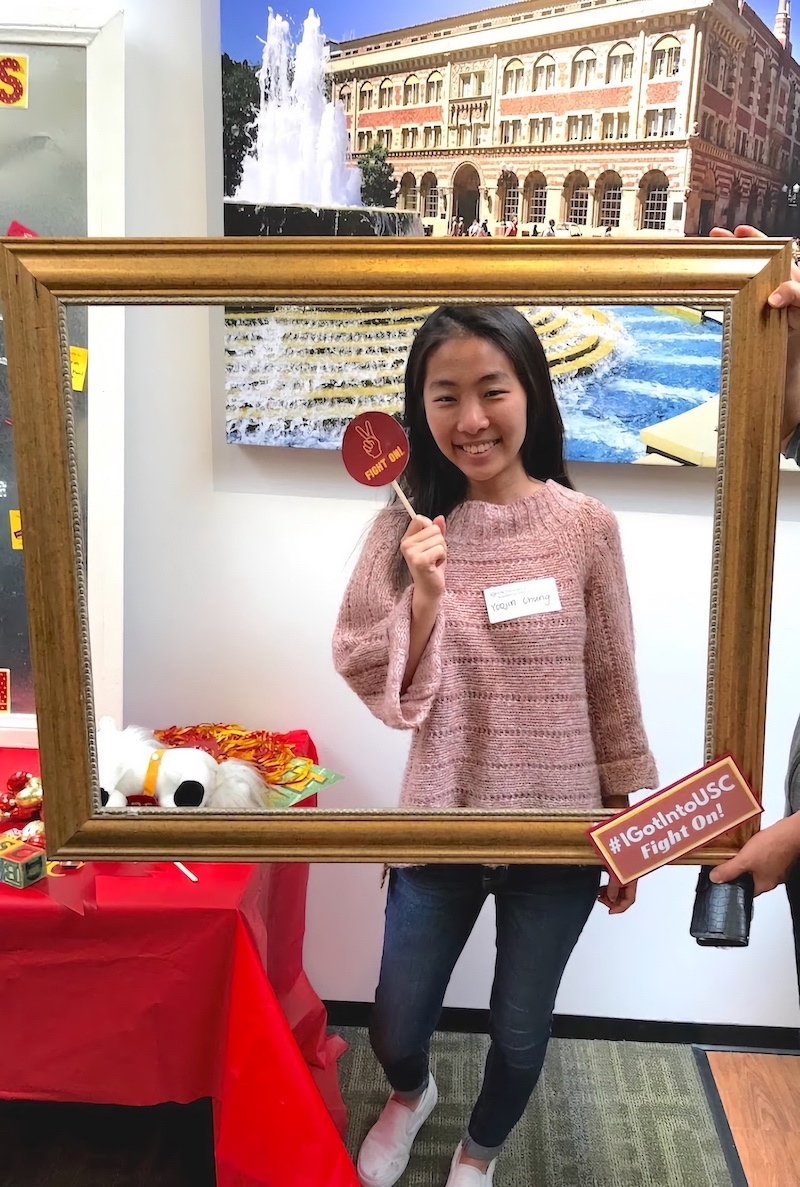
Me, over-the-world at the Admitted Student Reception in 2018!
⋯
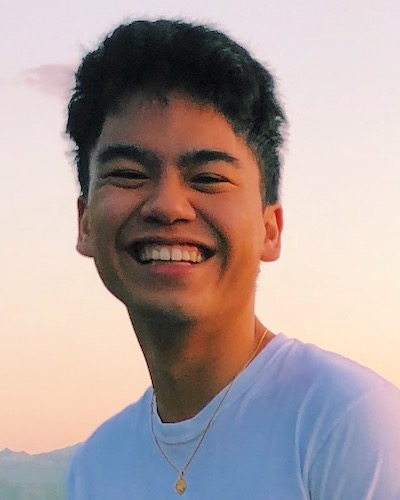
My Two Left Feet ⟩
September 13, 2022, by Bryan M.
Getting Involved What are OS/OT?
A common experience for burgeoning occupational therapists is the difficulty in explaining what OT is and why “occupations” are significant. Rather than giving you my “elevator pitch” definition, I thought I’d show you one of the ways I came to discover the superpower that is “occupation”.
Admittedly, I have two left feet. I am no dancer, and those closest to me can attest to that. Sure, I can find a rhythm, but you will never catch me impressing a crowd with my movement abilities. However, a key part of my undergraduate experiences, shaping me into the occupational therapy student I am today, was a dance performance that I took part in on USC’s largest stage in front of hundreds of people.
For context, I was a part of a student-run nonprofit organization in undergrad at USC called Troy Camp, which worked with elementary, middle, and high school students in the Greater Los Angeles Area, providing mentorship, leadership experiences, and academic support. Through this organization, I was able to put on a weekly creativity workshop for 3rd-5th graders at Vermont Elementary School. Modeling after a creativity-based course I took as a part of USC’s Occupational Science Minor, I developed a curriculum to provide an outlet for my students to express their creativity through mediums like filmmaking, dancing, engineering, crafting, and storytelling, among others.
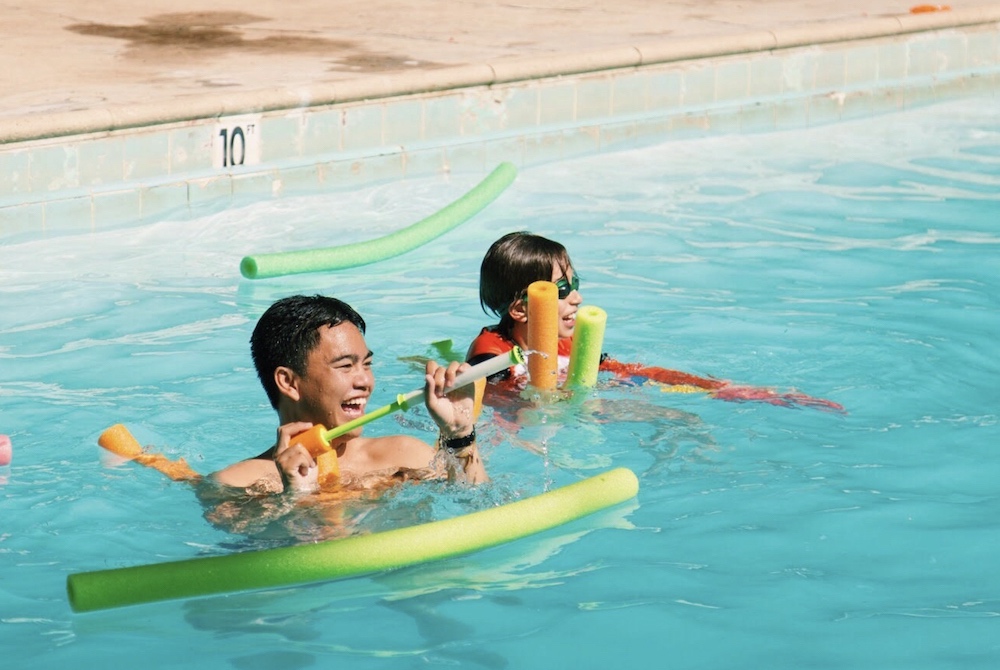
One of my campers and me at the pool during our summer camp
The ending event for this program was a live performance of Zedd’s “The Middle” in front of an audience at USC’s Bovard Auditorium, being a guest to one of USC’s premiere dance groups. The troupe came into the classroom to teach the students and counselors the choreography to the song, and then they gave us the opportunity to showcase our abilities at their yearly showcase.
I remember the night well, but what stands out the most was my interactions with one of my students, Vladimir. A bright, more reserved 3rd grader was attached at my hip for the night. When I first met Vlad, he showed a lot of apprehension and discomfort when exploring the various creative media. He did not feel comfortable expressing his creativity, and he had a lot of trouble connecting with his peers. However, over the course of the 5 months, his confidence had grown immensely, juxtaposing how timid he was when we first met. His attitude changed every week, with phrases like “I don’t want to . . .” turning into “When are we going to start?” Despite my own uneasiness in performing (because, as a reminder, I am not a dancer), Vlad’s newfound eagerness was heartening. We joined the rest of our group on stage, as Zedd’s “The Middle” came on through the speakers . . .
This experience, especially my work with Vladimir, serves as a testament to occupation. Vladimir’s disposition exemplifies how occupational opportunities can impact individual lives and inspires me to make my own mark in the field of occupational therapy. Though my program with Vladimir only lasted a year, I saw how his opportunity to engage in new creative occupations drastically improved his demeanor. I want to be an occupational therapist to empower individuals, especially those in marginalized communities, to live rich, fulfilling, meaningful lives, dancing alongside them with my two left feet.
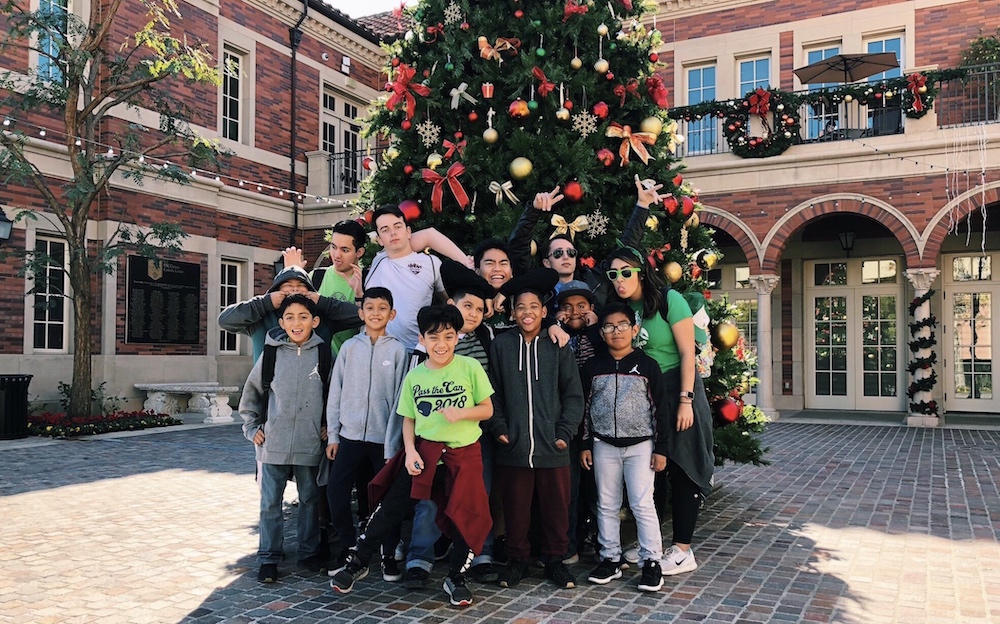
My Creativity Class in front of Bovard Auditorium after our dance performance
⋯
WOSC 2022: Redefining Inclusion Towards Social Transformation ⟩
September 12, 2022, by Global Initiatives Team
International What are OS/OT?
By Abby Khou, MA ’23
The inaugural World Occupational Science Conference was a gathering of occupational scientists, occupational therapy students, practitioners and educators, and members of the interdisciplinary world who have dedicated their lives to the work of social transformation through the knowledge from the body of work of Occupational Scientists. Held at the Sheraton Wall Vancouver Centre in Vancouver, British Columbia, one of the featured speakers at WOSC 2022 was Dr. Sridhar Venkatapuram, Associate Professor in Global Health and Philosophy at King’s College London and Deputy of King’s Global Health Institute and Director of Global Health Education. Dr. Venkatapuram spoke about the importance of values in science and promoting a capabilities approach that emphasizes quality of life, among other themes that set the tone for conference. Dr. Lilian Magalhães was another featured speaker, and is an adjunct professor at Federal University of São Carlos, Brazil and Associate Professor at Western University in Canada where she is Professor Emeritus. She highlighted her lifelong work in Occupational Science, her familial roots, and the commitment of Occupational Science to social transformation. The inaugural event was hosted by the University of British Columbia Occupational Science and Occupational Therapy and the International Society for Occupational Science.
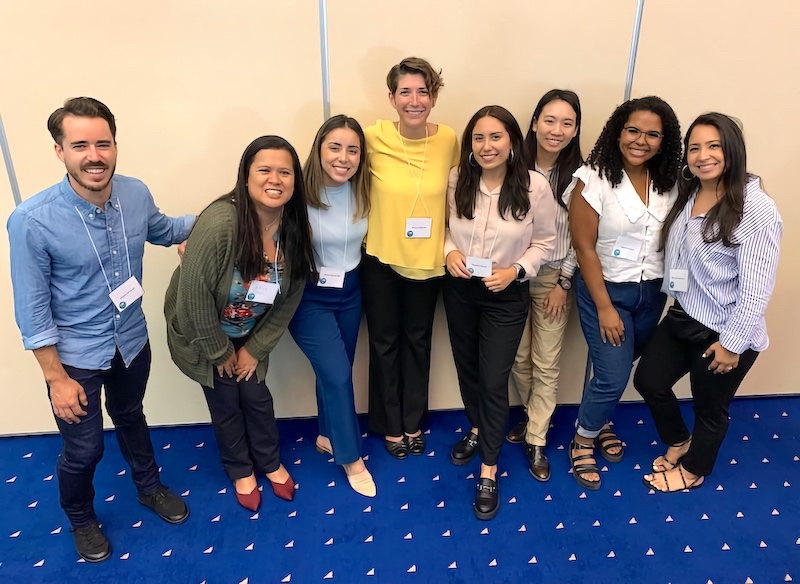
Adam Strizich, Abby Khou, Silvia Hernandez, Dr. Rebecca Aldrich, Daniela Flores, Yen Wen Pan, Kayla Brown, Monica Martinez
Our very own Dr. Rebecca Aldrich, Chair of the International Society of Occupational Science, along with Lisette Farias, Debbie Laliberte Rudman, Lilian Magalhães, Nick Pollard, and Roshan Galvaan, led a dialogic session entitled: Promoting an ‘unconference’ space for transformation of occupational science through critical dialogue. According to Farias et al. (2022), an “unconferencing” approach “prioritizes participation, reflection, and dismantling presenter-attendee hierarchies” (p. 4). By sitting in two concentric circles, the outer circle was able to actively listen as the inner circle addressed the question prompts and verbalized their thoughts. Participants spoke about Occupational Therapists and Occupational Scientists working hand in hand to achieve social change, the need for interdisciplinary involvement, and breaking away from traditional modes of communication such as research, to more grassroots initiatives such as those involving social media.
As a USC Chan second-year master’s student, a mother to a 6-year-old diagnosed with ASD and first-time conference attendee, I appreciated the themes of inclusion, play as occupation, belonging and the access of children to play and play spaces and the overarching theme of mobilization towards social transformation. There were a few presentations that particularly struck me, and further ignited my desire to advocate for a redefined sense of inclusion, the promotion of belongingness within the ASD community, and the awareness of play as occupation.
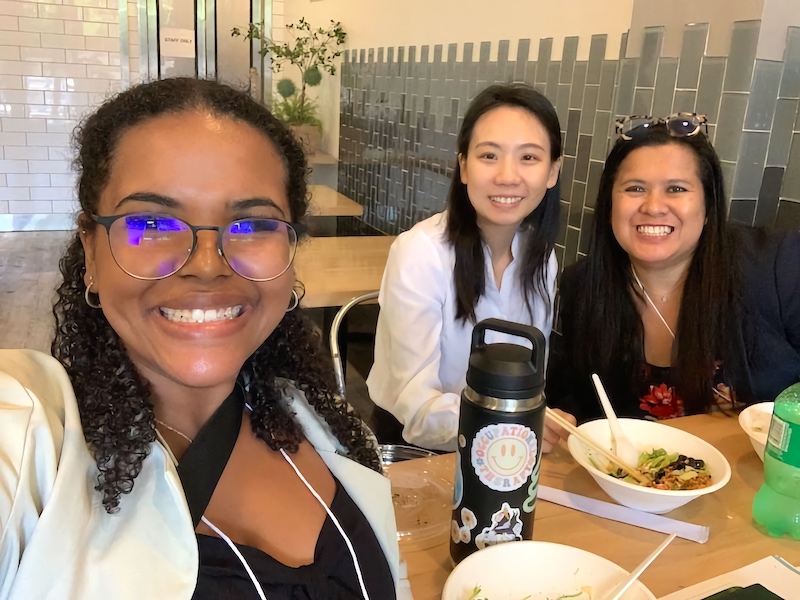
Kayla Brown, Yen Wen Pan, Abby Khou
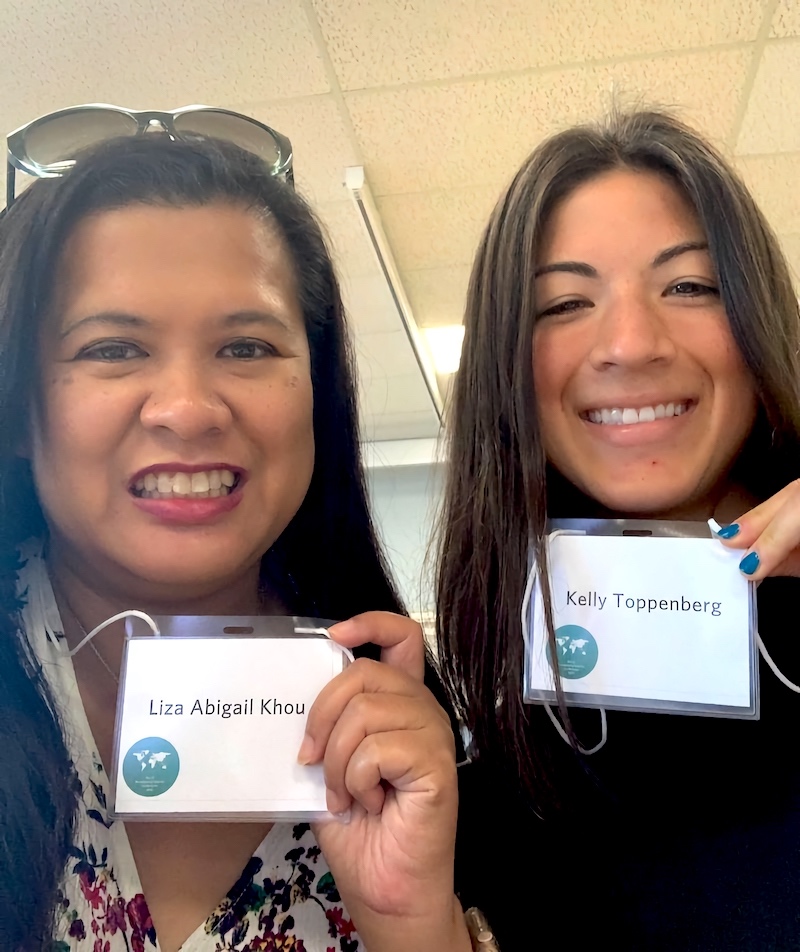
Abby Khou, Kelly Toppenberg
The passionate quality of the presentations on belongingness sometimes included tears, as presenters remembered their lived experiences of being a sibling to a disabled family member, or losing one’s cultural identity in the process of migration. I myself thought of my son Ethan while viewing “The Belonging Project: Conditions that support belonging for people with intellectual and developmental disabilities” presented by Paige Reeves, David McConnell and Shanon Phelan. I couldn’t help but share my own experiences as a member of the special needs parents community, sometimes being caught up in the pursuit of “services,” filling up my son’s schedule with therapy and appointments. “The Belonging Project” made me stop and think: does inclusion also result in exclusion if our idea of inclusion is for children to be included in manufactured spaces that we have created for them? Must we take away the agency of disabled children and plan out their days for them without consideration of where they truly want to be and who they desire to connect to? Is there a need to redefine the theory surrounding inclusion, mobilizing to translate into practice as we begin to chip away at the iceberg of social transformation? Reeves began her presentation quoting Reinders: “We create space and include people with [intellectual disability] as citizens . . . but do we also include them in our lives as human beings?”
The very definition of inclusion was questioned across different related presentations. The idea of having a “façade of inclusion,” that is, convincing ourselves as practitioners and caregivers of individuals with disabilities, that if we complete our checklists of the things we must do to advocate for our children’s inclusion, then our work is done. Comparing the façade of inclusion to the actual experience of being included was discussed in Paige Reeves, David McConnell and Shanon Phelan’s presentation: “The (radical) role of belonging in expanding and shifting understandings of social inclusion.” The Occupational Science perspective that the team was advocating for was a “paradigm shift” into a “meaningful involvement of disabled children’s voices.” What comes to mind is pediatric interventions that are child-led, respectful of families’ perspectives and culture, and the act of simply and truly listening in however way possible to the children when they communicate with us whether by verbal or by behavioral expression.
There is so much more to unpack from WOSC 2022 that I may not be able to express in this medium. I attempted to encapsulate such a wide and varied experience in the blog medium, but not quite able to represent all the meaningful experiences that I had at WOSC 2022. I had so many great and profound conversations and met so many wonderful people. As I moved from the conference back into my everyday life in my intersectional roles, I was filled with so many great ideas, a desire for social transformation and a further igniting of my passion for Occupational Science and Occupational Therapy. Maybe I left with more questions than answers, but that can be a good thing. Questions can lead to answers and answers can lead to solutions, and hopefully, continuing change.
References
Farias, L., Aldrich, R., Laliberte Rudman, D., Magalhães, L., Pollard, N., & Galvaan, R. (2022, August). Promoting an ‘unconference’ space for transformation of occupational science through critical dialogue [Dialogic session]. World Occupational Science Conference 2022, Vancouver, BC, Canada.
Reeves, P., McConnell, D., & Phelan, S. (2022a, August). The belonging project: Conditions that support belonging for people with intellectual and developmental disabilities [Paper presentation]. World Occupational Science Conference 2022, Vancouver, BC, Canada.
Reeves, P., McConnell, D., & Phelan, S. (2022b, August). The (radical) role of belonging in expanding and shifting understandings of social inclusion [Paper presentation]. World Occupational Science Conference 2022, Vancouver, BC, Canada.
⋯
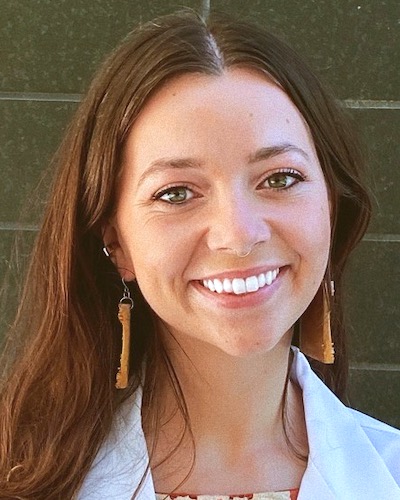
From Patient to Therapist: Rediscovering Occupational Therapy ⟩
September 9, 2022, by Leah
Fieldwork Living in LA What are OS/OT?
I first learned about occupational therapy from my cousin’s girlfriend, who was an occupational therapist. I was ten years old, undergoing chemotherapy for liver cancer, and spent most of my time in hospitals and at home. Besides feeling fatigued and nauseous, I had lost many of my occupational identities, such as being a student, athlete, and friend. My cousin’s girlfriend began to visit my home to teach me how to paint, and we would talk about schoolwork and life. I looked forward to her visits, motivating me to get up from bed, and I received a lot of comfort in starting to see myself as an artist. Following treatment, this experience stuck with me as I became involved in an oncology summer camp that uses occupations to provide healing and respite to impacted families.
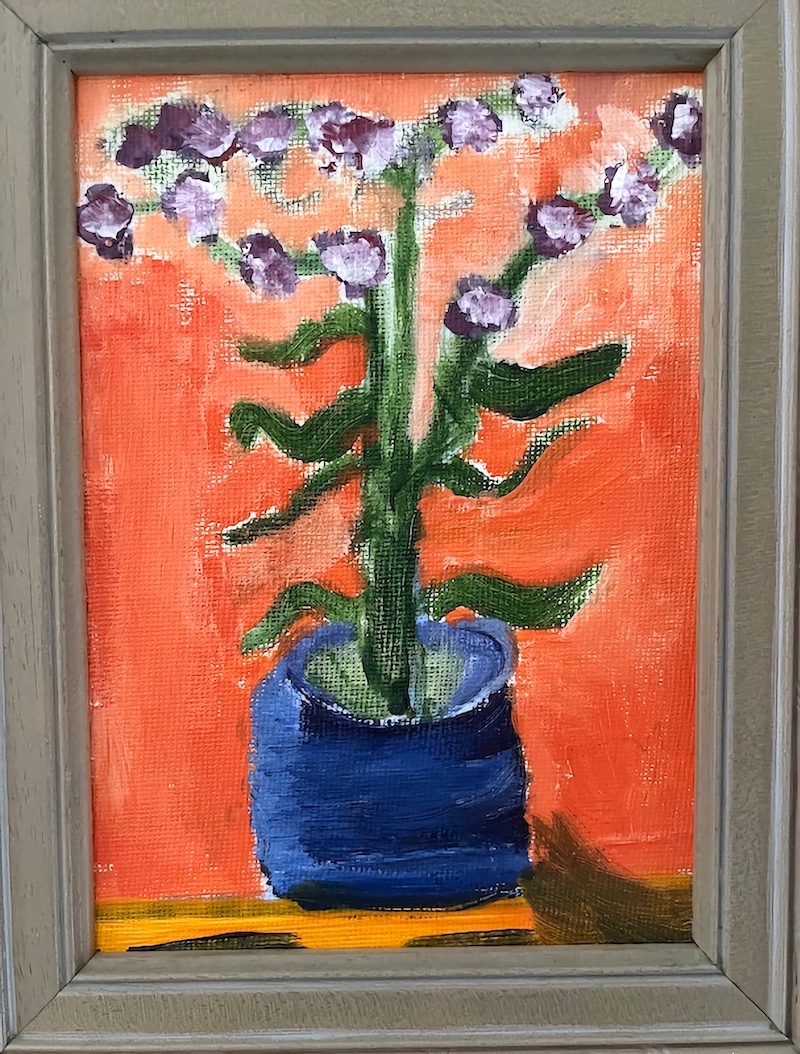
Here is a painting I made during one of my informal OT sessions with my cousin’s girlfriend
Years later, I loved studying psychology, neuroscience, and philosophy during my undergraduate years. Due to my connection with cancer treatment, I continued to be drawn to health care positions and enjoyed my health science classes. Still, I had no idea what career I wanted to pursue.
Following college, I began working in permanent supportive housing. Because of my previous work in research, I thought I might want to be a clinical psychologist. I fell in love with working 1:1 with people and using occupations as a therapeutic means. Some activities I participated in with the residents included shared meal times, grocery shopping, laundry, resource seeking, dog watching, visiting the zoo, birthday parties, and bowling. My favorite part of the role was spending mornings in conversation and sitting in the lobby with residents. I became closest with the public health nurses in the building, and it continued to make me consider working in health care.
Because I was still pursuing clinical psychology, I began working as a research coordinator. While working at a Multiple Sclerosis clinic, I learned many things about myself, both good and bad. I loved working with the participants and often would talk with participants on the phone for far longer than necessary while completing assessments. I loved collaborating with an interdisciplinary team in the clinic when working with participants. I also learned that while researching was essential and exciting, I did not want to make research my career. I had a hard time in an office job and felt like jumping out of my seat every day.
At the beginning of the pandemic, I had a long conversation with my good friend from college who was currently at USC’s OT program. I shared all my doubts and hesitations about pursuing clinical psychology, and I realized my friend was describing my dream job. He discussed his love of occupational therapy’s holistic approach and the connections he had built during his fieldwork experiences. He then told me how he was about to begin his doctoral residency in an oncology hospital! I was overwhelmingly happy for him and a little jealous, so I decided to learn more about pursuing occupational therapy.
I then spoke with several occupational therapists over zoom/phone (hello pandemic!) about their roles as occupational therapists in hospitals, community mental health, and school settings. During every conversation, I felt myself light up and easily connect with the therapists about what I valued about working with people. Importantly, every therapist expressed satisfaction and pride in their work and the longevity in which they have enjoyed their job. I was drawn to the flexibility and scope of the profession. I reflected on my occupational identity and how vital my cousin’s girlfriend was to me during my medical treatment.
And now, I love my experience studying to be an occupational therapist. I spent this last summer in an inpatient acute adult setting. Next summer, I have my dream fieldwork, working in pediatric oncology at St. Jude’s Hospital in Memphis, TN!
⋯
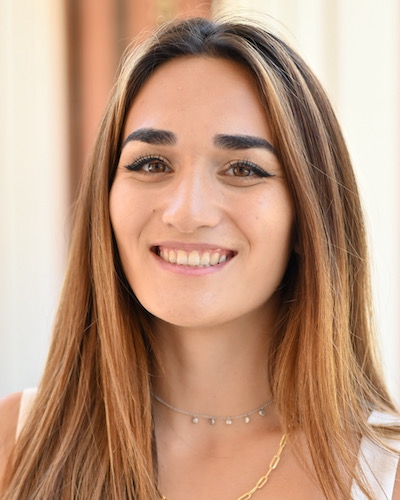
Thank You, Occupational Therapy ⟩
August 22, 2022, by Leah Mary
Classes Fieldwork What are OS/OT?
The first time I heard about occupational therapy was during my Freshman Year (2016) in my seminar class with Dr. Jesús Díaz. One of our classes was dedicated to introducing us to occupational therapy. At the time, I was volunteering in different research labs studying the brain and thought I wanted to get my PhD in Neuroscience. I didn’t want to pursue occupational therapy (I know, what was I thinking!?).
Fast forward to the end of my Sophomore Year, I was pretty unhappy. While I found the research fascinating, something was missing. Most of the time, I was behind the computer, not interacting with individuals (and I’m a huge extrovert). I felt utterly lost. This was around the same time my grandmother was diagnosed with Glioblastoma, an aggressive brain cancer that impacted her overall well-being, requiring multiple brain surgeries and significant therapies.
My grandmother had a PhD in education, was a biology teacher, and my best friend. I was devastated seeing such an incredible person go through something so terrible. But my grandmother was determined and motivated to stay strong and healthy as long as possible. That summer, she went to inpatient and outpatient therapy at Shirley Ryan AbilityLab in Chicago. This was the second introduction I had to OT, however, this time in its most authentic form. I witnessed how OT positivity impacted her life. The therapist used meaningful occupations to motivate and connect with my grandma (she loved OT the most). And because the therapy was embedded into her daily life, she could continue at home when discharged. OT changed her life.
Right then, I knew that pursuing a career in OT was my calling. I loved the therapist’s interactions with their clients, the creativity involved in incorporating meaningful occupations, and their impact on people’s lives.
Fast forward again to now. I just completed my last II fieldwork at Shirley Ryan AbilityLab (on the same floor my grandmother was on) and graduated from the Entry Level Master Program. OT changed my life. It’s weird, but every time I engage in fieldwork or OT courses at school, I feel connected to her, so thank you OT.
⋯






